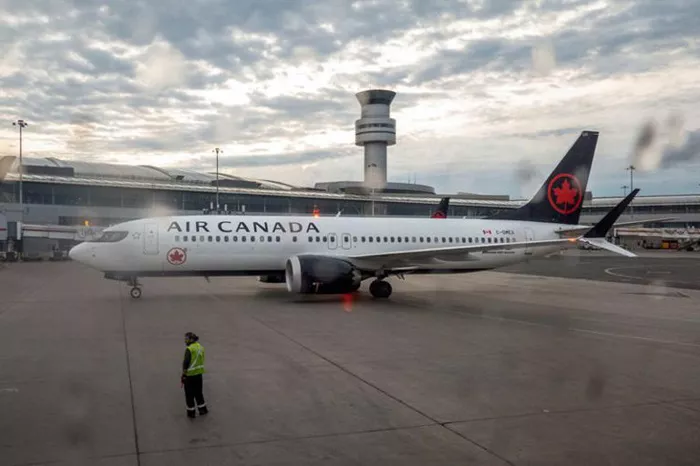Air Canada has lowered its annual profit forecast and reported first-quarter revenue that fell short of analysts’ expectations, as reduced cross-border travel led to weaker results. The decline in trans-border traffic is partly due to a weaker Canadian dollar and ongoing trade tensions with the United States.
The airline now projects its adjusted EBITDA for the year will be between C$3.2 billion ($2.30 billion) and C$3.6 billion, a decrease from its previous forecast range of C$3.4 billion to C$3.8 billion. Many Canadians are boycotting U.S.-made goods and canceling trips to the U.S. in response to President Donald Trump’s tariffs on Canada and his comments about potentially annexing Canada as the 51st state.
Air Canada had previously noted that its drop in U.S.-bound bookings over the next six months reflects an industry-wide decline of about 10%.
The airline posted revenue of C$5.19 billion, a 1% decrease from last year and below the average analyst estimate of C$5.29 billion. The results were also affected by severe winter storms in Eastern Canada and a February accident involving a Delta Air Lines jet in Toronto. The accident led to the closure of two runways at Toronto Pearson International Airport, a key hub for Air Canada.

